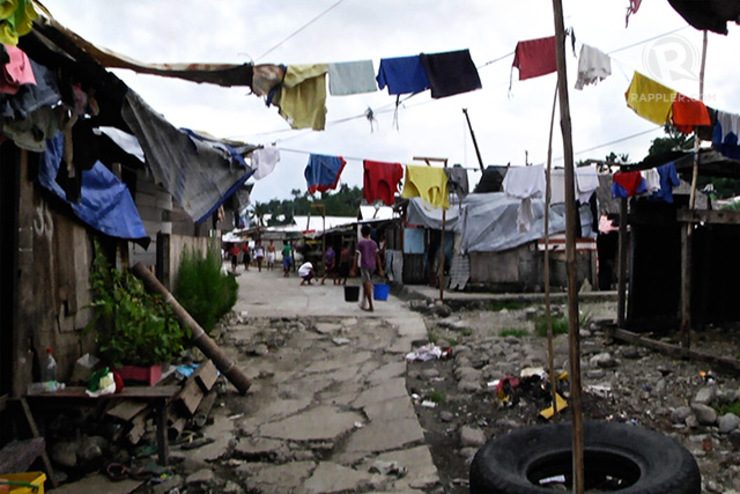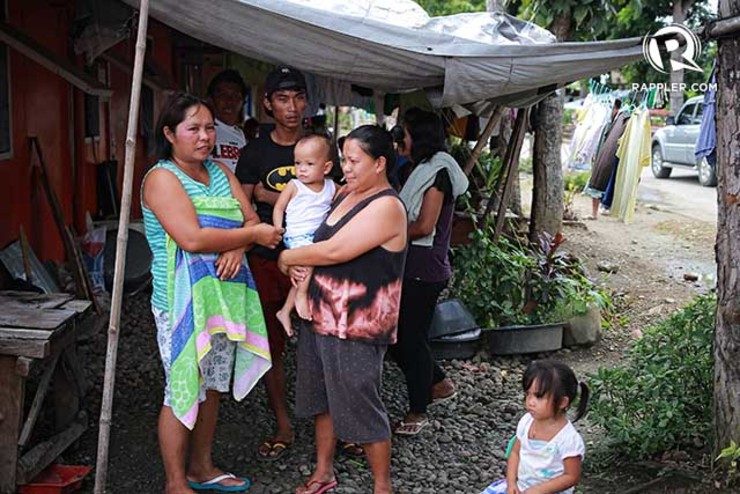SUMMARY
This is AI generated summarization, which may have errors. For context, always refer to the full article.

UNITED NATIONS – While praising the resilience of Filipinos recovering from Super Typhoon Yolanda (Haiyan), the United Nations urged the Philippine government and aid groups to prioritize 20,000 people still without homes a year later.
On the eve of the first anniversary of the world’s strongest storm to hit land, the UN’s refugee agency called on the Philippines to look for “solutions” for 20,000 people either living in shelters or with host families.
The UN High Commissioner for Refugees (UNHCR) pointed out that most of the 4.1 million people whom Yolanda displaced either returned home to rebuild or were relocated. Yet the world body expressed concern about families in the remaining displacement sites.
“UNHCR’s focus today is the situation of the 20,000 people still living in 56 displacement sites across typhoon-affected areas. A recent protection assessment found that people still need help with physical dwellings, water and sanitation, hygiene, as well as land and property issues,” said UNHCR spokesperson Adrian Edwards at a press briefing in Geneva on Friday, November 7.
UNHCR said that it is monitoring the situation of the displaced families along with its partner organizations and agencies.
“We’ve worked to strengthen the government’s capacity to ensure that basic services are provided and that the rights of the displaced people – including their right to voluntary return or relocation – are respected,” Edwards said.
The Philippines is marking the first year since the typhoon killed 6,300 people and wiped out poor communities in central Philippines with strong wind and storm surges. The devastation overwhelmed and shocked a country used to disasters, and an average of 20 typhoons a year.
International organizations and humanitarian groups have credited the government for its “competent” and “impressive” rehabilitation efforts but noted that permanent shelter and livelihood remain urgent needs. (READ: After world aid, gov’t must scale up Yolanda rehab)
UNHCR said that in some areas like hard-hit Tacloban and Eastern Samar, local officials provided temporary shelter and explained to people that they will have to stay there for two years while it continues to search for permanent relocation. (READ: Yolanda a year after: Tacloban ‘township’ to rise)
“These efforts are complicated by the shortage of suitable [land] and the lack of services to make relocation sustainable,” the UNHCR said.
After the immediate relief effort, UNHCR handed over its work to the national and local government, non-governmental and development organizations.
In the first phase of the response, UNHCR provided aid including tents, plastic sheets, blankets, hygiene kits, kitchen sets and solar lanterns.
The UN is not the only group to highlight the need for permanent shelter. The Geneva-based Internal Displacement Monitoring Centre (IDMC) told Rappler in a previous interview that the government must ensure “dignified” temporary shelter while working out long-term relocation and policy issues.
“People need to have a dignified life while durable solutions are made. You need privacy, dignity. You cannot leave people in a limbo while you say, ‘Your land is not safe anymore. We won’t pay you anything and you need to be somewhere else.’ You need to have a system for this,” said IDMC executive director Alfredo Zamudio.
‘Pass law protecting IDPs’
The UNHCR also took the Yolanda anniversary as an opportunity to reiterate its call for a law protecting the rights of internally displaced persons (IDPs).

The Philippine Congress initially passed a law but President Benigno Aquino III vetoed it in May 2013, saying a provision allowing IDPs to claim compensation from the government “opens the door to a slew of claims or cases” and violates the “non-suability” of the state.
Groups like UNHCR and IDMC have since been supporting efforts in Congress to craft a bill that will be signed into law.
“We continue to highlight the urgent need for the Philippines to adopt legislation to protect the rights of internally displaced people – in what is one of the world’s most natural disaster-prone countries. The bill would also provide a much-needed legislative framework to allow state authorities to protect and assist people displaced as a result of the decades-long conflict in the southern Philippines,” Edwards said.
Edwards was referring to the conflict between the government, and rebels and terrorists in Mindanao. The government is working with the Moro Islamic Liberation Front (MILF) on a historic peace process that will create a new political entity by the time the Aquino administration steps down in 2016.
“The passage of this [IDP] legislation would be very timely as the country welcomes crucial steps in attaining sustainable peace in the southern Philippines. These steps could pave the way for millions of citizens to rebuild their lives through local settlement, voluntary return or relocation throughout Mindanao,” the UNHCR spokesman said.
Assessment of government rehabilitation efforts has been glowing at best, and highly critical at worst.
The UN’s resident and humanitarian coordinator in the Philippines Luiza Carvalho said on Thursday that the world body noted progress one year after Yolanda, and praised the “extraordinary resilience of the Filipino people.”
Some local observers and groups of victims though have lamented what they called a slow response, pointing out that many families still live in cramped and shattered tents.
President Benigno Aquino III has defended his government’s work, and lashed back at critics a day before the one-year mark. (READ: Aquino slams critics of Yolanda rehab)
“For those who don’t get tired of criticizing our every move, I will let God deal with them. The day might come that God will give them additional knowledge and kindness, that they may straighten up,” he said while in Yolanda-hit Guiuan, Eastern Samar. – Rappler.com
For Rappler’s full coverage of the 1st anniversary of Super Typhoon Yolanda (Haiyan), go to this page.
Add a comment
How does this make you feel?
There are no comments yet. Add your comment to start the conversation.